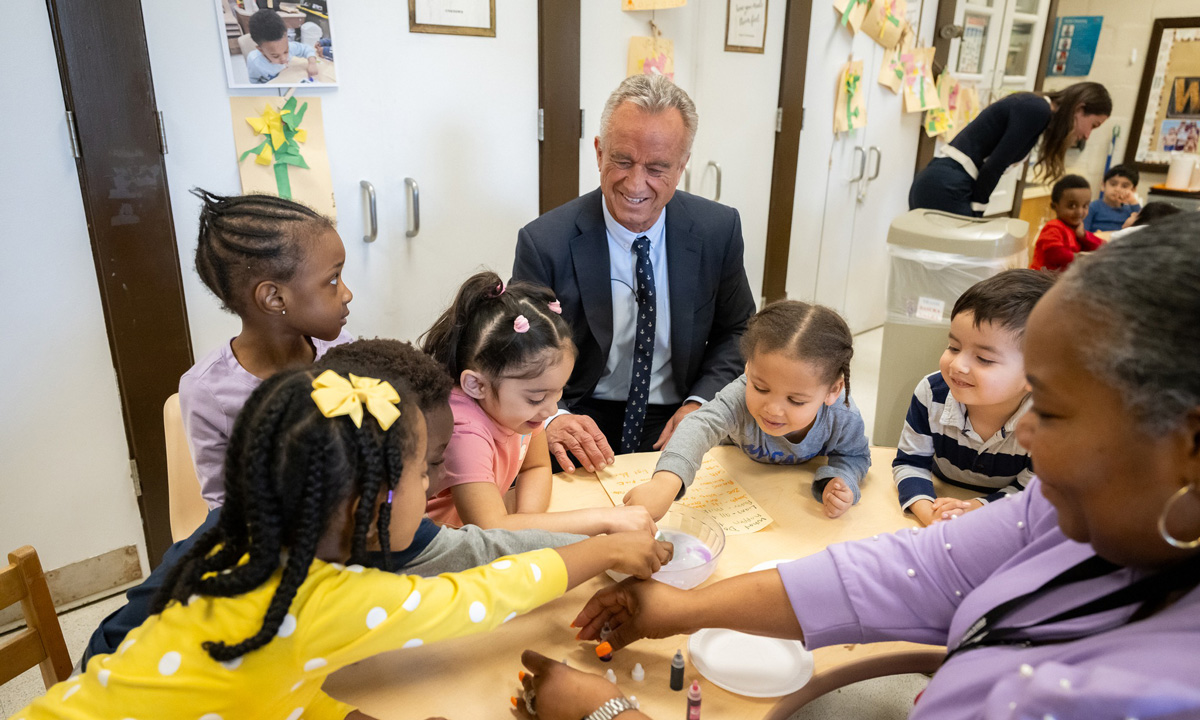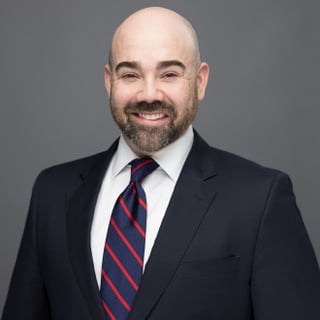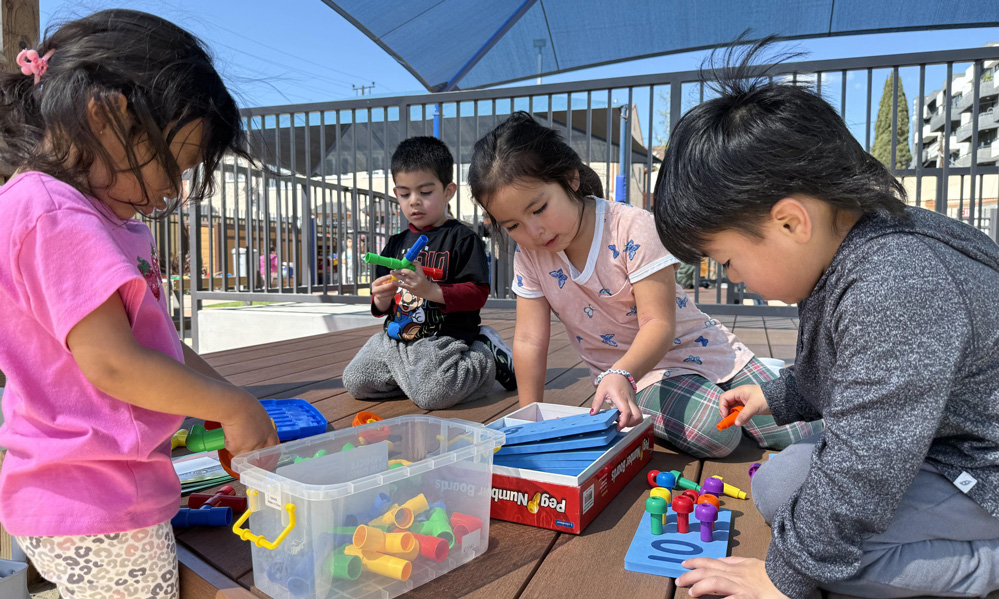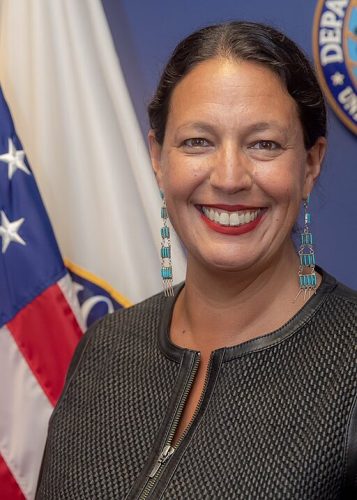From Head Start to Adult Ed, Trump Narrows Pathway for Undocumented Students
Educational opportunities wither with early and career ed restrictions, the loss of in-state college tuition and looming K-12 deportation fears.

Get stories like this delivered straight to your inbox. Sign up for The 74 Newsletter
Updated July 28, 2025
On Friday, undocumented immigrants, banned from Head Start and career and technical education programs and adult education earlier this month, were granted a reprieve through Sept. 3 in the 20 states — and the District of Columbia — where attorneys general fought the Trump administration’s recent directive to kick them out, according to new court filings. The U.S. Department of Justice, the U.S. Department of Health and Human Services, the U.S. Department of Education, and the U.S. Department of Labor all agreed to the delay.
From cradle to career, President Donald Trump has launched a comprehensive campaign to close off education to undocumented immigrants, undercutting, advocates say, the very reason many came to the United States: for a chance at a better life.
Preschoolers without legal status are now banned from Head Start and older students and adults without papers are blocked from career, technical and adult education. Some states are rescinding in-state college tuition for those here illegally and K-12 schools are being targeted by the president’s sweeping immigration enforcement crackdown
The directive affecting Head Start enrollment was released July 10. The federally funded early education program was created in 1965 to help underprivileged children succeed in school.
On the same day, the U.S. Department of Education shut the door on older undocumented students and adults hoping to gain job skills, earn dual enrollment credits or learn to read. Education Secretary Linda McMahon explained: “Under President Trump’s leadership, hardworking American taxpayers will no longer foot the bill for illegal aliens to participate in our career, technical, or adult education programs or activities.”
The nation’s K-12 public schools, filling the vast middle between early education and college and careers, have been leveraged in the administration’s aggressive, multibillion-dollar deportation effort with federal agents arresting and detaining students and questioning unaccompanied minors.
These and other enforcement tactics have terrified newcomer families to the point that some students are skipping school, prompting educators to suggest a solution that was once unthinkable: a return to remote learning.
“I know districts are contending with, you know, ‘Do we move to the hybrid approach that we learned how to do back in the pandemic in the fall so that students are not subject to ICE raids by just walking in the classroom door?” Amy Loyd, head of CTE and adult education under former education secretary Miguel Cardona, told The 74.
One California college has already started offering this option, a nod to the numerous barriers undocumented young people already face in pursuing higher education. Cost is among the most pressing; these students don’t qualify for Pell grants or federal student loans.
The financial hurdle was alleviated when at least two dozen states, often with bipartisan support, extended in-state college tuition to local high school graduates who lack legal status. These policies, some in place for decades, are now under attack by the Trump administration.
The president issued an order in the spring saying the policies needed to stop because they offered more affordable in-state tuition rates “to aliens but not to out-of-State American citizens.” In June, the justice department sued Kentucky, Minnesota and Texas to end the practice, setting students adrift. Within hours, the Lone Star State voluntarily agreed to abolish its program, the oldest in the country.
Florida was first to act, moving to eliminate in-state tuition for undocumented students in February.
Augustus Mays, the vice president of EdTrust, an equity-focused advocacy group, called out the bigger picture in reacting to the CTE and adult education restrictions earlier this month.
“Let’s be clear: this move is part of a broader, deeply disturbing trend,” he said in a statement. “This is not about protecting taxpayers. It’s about punishing students. This administration is choosing to weaponize policy against hope itself.”

On July 23, the Education Department’s Office for Civil Rights opened investigations into five colleges, including the University of Miami and the University of Michigan, for offering scholarships to undocumented students protected by the Obama-era Deferred Action for Childhood Arrivals program, which gives them the right to live and work in this country. The inquiries will examine whether granting scholarships to DACA recipients discriminates against American-born college-goers.
“As we mark President Trump’s historic six months back in the White House, we are expanding our enforcement efforts to protect American students and lawful residents from invidious national origin discrimination of the kind alleged here,” Acting Assistant Secretary for Civil Rights Craig Trainor said in a statement.
The youngest — and the oldest — learners
Sarah Orth is chief executive officer at the Blind Children’s Center, which was founded in Los Angeles in 1938. Its programs now include Head Start, which serves 85 early learners from birth to 5 years old.
“This move against Head Start is so egregious because infants and toddlers are the most vulnerable,” she said, adding she’s unsure how her program will identify and remove undocumented students. “Are the children who are already enrolled going to be grandfathered in or am I kicking the kids out next week? I have no idea. I have people on my staff who are crying because they are going to have to deliver this news.”
Orth said some families could never find the breadth of services their kids need in their home countries. She recalled one 4-year-old girl brought into the program by her parents, who were young and Spanish-speaking. Their daughter was visually impaired, had sensory issues and had not been exposed much to the outside world.
“When they first enrolled her, dad would carry her from the car to the classroom and would never put her down,” Orth said. “If you tried to do that, she would lift her feet up because she didn’t know what was happening.”

Within six to eight months of enrolling in Head Start, the child was walking on her own — both indoors and outside — and playing with friends. As she grew in confidence, she was no longer “clinging to dad with the fear she had when she first came to us.”
Her parents also learned how important it was for her to have social-emotional connections, Orth said.
An estimated 115,000 Head Start children and families could be impacted by the move to bar the undocumented. Together, they comprise roughly 16% of the program’s total 2024-25 enrollment, according to an analysis by the U.S. Department of Health and Human Services, which runs the program. The federal government covers 80% of Head Start’s cost, devoting $12 billion to the program in 2023.
“For 60 years, this program has never required that kind of [citizenship status] validation or verification,” said Luis Bautista, executive director of the Los Angeles County Office of Education Head Start and Early Learning Division, which serves some 7,000 children and families. “This is just adding to the fear and confusion families are experiencing amidst all of the other actions out there — including immigration.”
He called Trump’s move “extremely unfortunate,” adding that he doesn’t agree with the president’s characterization of kids born on foreign soil.
“I don’t consider a child — especially a 3-year-old — to be illegal in any way,” Bautista said, adding money devoted to young minds is well spent. “Ninety percent of brain development happens before age 5. That is where the investment should be.”
It’s unclear how many older students will be affected by Trump’s citizenship restrictions. Some 8.3 million high school — and roughly 3.5 million post-high school — students participated in CTE in the 2020-21 school year, the most recent year for which federal data is available, according to the Association for Career & Technical Education.
Congress each year sends some $1.4 billion to states and appropriates another roughly $30 million for competitive grants to support CTE efforts across the country. These programs, through their funding, are required to support nine “special populations,” including single parents, those with disabilities and English learners.

Loyd, who is now CEO of the advocacy organization All4Ed, said she’s concerned about Trump’s focus on higher education, including CTE programs, which she said help students from all walks of life.
“Basically, we are relegating high school students to entry-level, dead-end jobs,” she said. “It’s just mean-spirited and certainly consistent with the administration’s commitment to undermine the vital presence of immigrants in our nation. It’s so dehumanizing.”
The $715 million the federal government spends on adult education serves a slightly different population, adults and out-of-school teens 16 and older. The funding, among the $7 billion temporarily frozen by Trump this summer, covers a range of programs, including high school diploma equivalency, adult literacy and vocational job training for people with disabilities.
The programs are run by community colleges, school districts and outside community organizations. Many serve English learners.
An adult education teacher in Indiana told The 74 that the 300-plus immigrants in her program — many from Haiti, Guinea and Senegal — enroll to learn English and earn a high school diploma equivalency. Some of the younger students, she said, use the program to prepare for college while the older participants hope it will help them land better-paying jobs.
The teacher, who asked not to be identified because she feared losing funding for her program, described her students as “the most respectful, grateful people I have ever met in my life.”
She said they respond with copious appreciation even for a gift as small as a pencil.
“I’ll say, ‘Just take it,’ and they will use it until it’s down to the nub,” she said. “They are just so eager to learn.”
Will Plyler be next?
The administration is changing the narrative around programs like Head Start and CTE, moving them away from their educational roots and the view that they were beneficial to the economy and casting them instead as federal public benefits. Undocumented immigrants are not eligible for such programs, including food assistance and non-emergency Medicaid.
Wil Del Pilar, senior vice president at EdTrust, asserted that this is part of a wider strategy by the president to scapegoat some of the country’s most vulnerable people.
“This is not a new trope,” he said, adding that German, Irish and other immigrant groups were similarly castigated upon their arrival to America, fueled by the notion that newcomers “are taking something that belongs to you, that they are getting a benefit you don’t receive.”
And while many of Trump’s initiatives are facing legal challenges — 21 Democratic attorneys general sued the administration earlier this month over the Head Start and career, technical and adult education directives — the president has largely prevailed in his efforts on immigration.
With each new announcement, immigrant advocates worry Trump could be inching closer to dismantling or undermining Plyler v. Doe, the landmark 1982 Supreme Court ruling that a child cannot be denied a public education based on immigration status. Some immigrant advocates fear his administration might try to argue that a free, public education is also a public benefit program — and so off-limits to undocumented K-12 students.
The U.S. is home to roughly 11 million undocumented residents. In 2021, the American Community Survey counted 649,000 children ages 5 to 17 who had been in the United States for three years or less, and another 1.5 million immigrant children living here four years or more, according to the Migration Policy Institute.
Stephen Miller, White House deputy chief of staff and architect of the president’s immigration crackdown, searched for ways early in Trump’s first term to undercut Plyler. In June, one of the authors of the Project 2025 conservative playbook, who has proposed challenging or overturning the ruling, became the Education Department’s newest deputy chief of staff for policy and programs. Both Texas and Tennessee have recently tried to weaken K-12 protections for undocumented students.
Pamela Broussard, a Texas-based educator and advocate for English learners, said overturning Plyler “would betray the very principles upon which public education was founded.”
She maintained that education is a right — not a privilege — and that all students deserve to be supported in their learning.
“When any group of children is denied access to education, we create an underclass more likely to face poverty, unemployment and social marginalization,” she told The 74. “At its core, Plyler v. Doe affirmed that the Equal Protection Clause of the 14th Amendment applies to all people, not just citizens.”
Get stories like these delivered straight to your inbox. Sign up for The 74 Newsletter

;)
